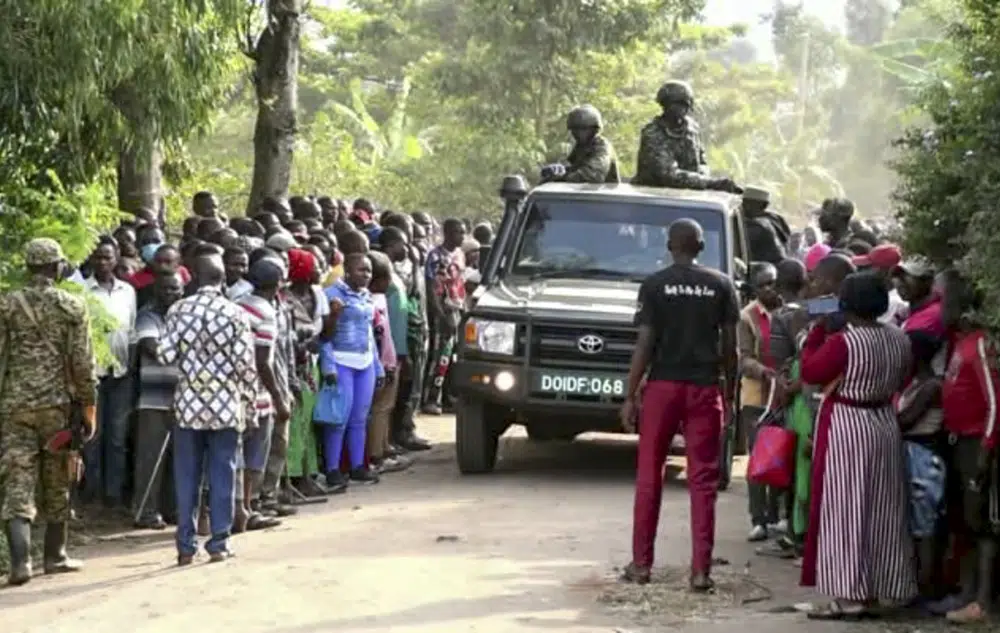Tragedy struck the Lhubiriha Secondary School in Mpondwe, western Uganda, when five militants unleashed a night of terror, culminating in the ruthless killing of nearly 40 pupils. The incident, which occurred around 23:30 local time (20:30 GMT) on Friday, has been attributed to rebels associated with the Islamic State (IS) group.
According to official reports, the assailants forced their way into the dormitories, setting them ablaze and using machetes to slaughter and maim students.
The Allied Democratic Forces (ADF), a militia group with roots in the Democratic Republic of Congo (DRC), is believed to be behind the attack. A massive manhunt is underway. The school, which caters to more than 60 pupils, mostly residents, has been left in a state of shock and despair.
Uganda’s Information Minister confirmed the death toll as 37 students, but refrained from disclosing their ages. Additionally, the Ugandan army reported that a school guard and three members of the local community were slain by the rebels.
Survivors recounted how the militants lobbed a bomb into the dormitory after the machete assault. It remains uncertain whether this bomb is linked to the earlier reported fire.
In a sinister twist, six students were abducted to transport food that the rebels pilfered from the school’s supplies. The militants subsequently retreated across the border into the DRC.
With some victims burnt beyond recognition, DNA tests will be necessary for identification.
The United Nations Secretary-General, Antonio Guterres, denounced the “appalling act” and called for the perpetrators to face justice. Ugandan forces are currently in pursuit of ADF insurgents towards Virunga National Park in DRC, which is Africa’s oldest and most extensive national park, renowned for housing endangered species such as mountain gorillas. It is also a refuge for militias, including the ADF, due to its sprawling expanse bordering Uganda and Rwanda.
“Our forces are pursuing the enemy to rescue those abducted and obliterate this group,” stated Defence Spokesperson Felix Kulayigye on Twitter. Helicopters have been deployed by the Ugandan army to aid in tracing the rebels across the mountainous terrain.
In response to the ADF threat, Uganda and the DRC have conducted joint military operations in eastern DR Congo.
Despite security forces having intelligence regarding rebels’ presence in the border area, local residents have condemned the authorities for their lack of preparedness.
The chilling assault on the school, situated less than 2km from the DRC border, marks the first such attack on a Ugandan educational institution in 25 years.
Richard Moncrieff of the International Crisis Group suggests that the ADF may target schools to recruit children, but also to shock and gain notoriety among their IS counterparts globally.
Originally formed in eastern Uganda in the 1990s, the ADF sought to oppose President Yoweri Museveni, citing the government’s persecution of Muslims.
After being routed by the Ugandan army in 2001, the ADF relocated to North Kivu province in the DRC. The group pledged allegiance to the Islamic State in 2016.
Despite the Islamic State’s overall decline, IS-affiliated militant groups continue to wreak havoc across the Middle East and Africa.
This incident closely follows a series of attacks in 2021, for which the ADF was blamed, including suicide bombings in Uganda’s capital, Kampala.
Image Credit: AP Photo




